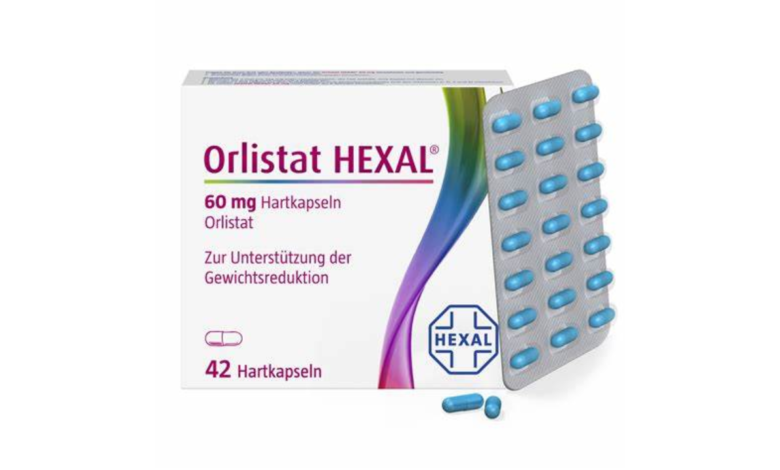Orlistat: Helps with weight loss by blocking fat absorption.

Brief information about it:
Orlistat is a medication used to help people with obesity or overweight lose weight. It works by blocking the absorption of fat in the intestines.
Uses:
· Weight loss: Orlistat is used in conjunction with a reduced-calorie diet and increased physical activity to help people lose weight.
· Maintaining weight loss: It may also be used to help people maintain weight loss after they’ve lost a significant amount of weight.
Mechanism of action:
Orlistat works by blocking the enzymes that break down fat in the intestines. As a result, more fat is excreted in the stool.
Elimination half life:
The elimination half-life of orlistat is approximately 1-2 hours. This means that it takes about 1-2 hours for half of the medication to be eliminated from your body.
Route of Administration:
Orlistat is available in capsules. It is taken by mouth with meals.
Side effects:
Orlistat may cause some side effects, including:
- Oily stools
- Gas
- Urgency to have a bowel movement
- Fecal incontinence
- Abdominal cramps
- Headache
- Fatigue
Serious side effects can also occur, such as:
- Allergic reactions
- Liver problems
- Kidney stones
Dose:
The appropriate dose of orlistat will depend on your individual needs and medical history. Your healthcare provider will determine the best dose for you.
Precautions:
Before taking orlistat, it’s important to discuss any potential risks with your healthcare provider. Some precautions include:
- Liver problems: If you have a history of liver problems, you may be at increased risk.
- Kidney problems: If you have a history of kidney problems, you may be at increased risk.
- Pregnancy and breastfeeding: Orlistat should not be used during pregnancy or breastfeeding.
- Malabsorption syndrome: If you have malabsorption syndrome, orlistat may worsen your condition.





